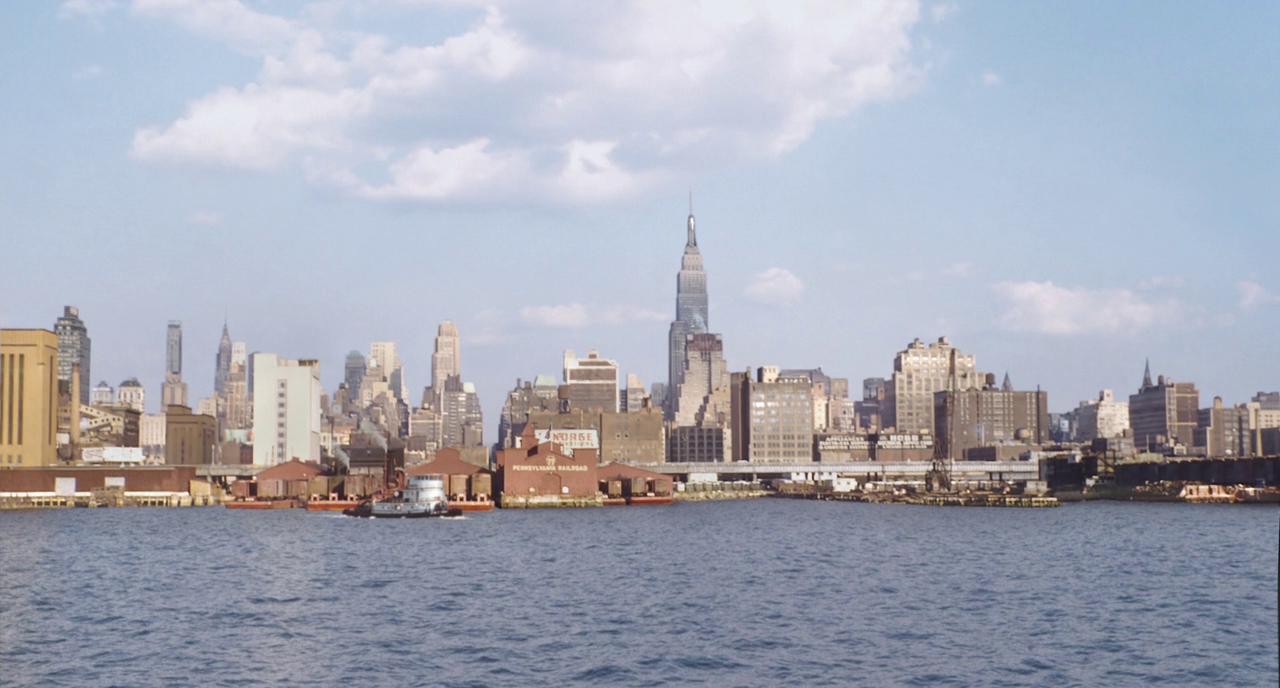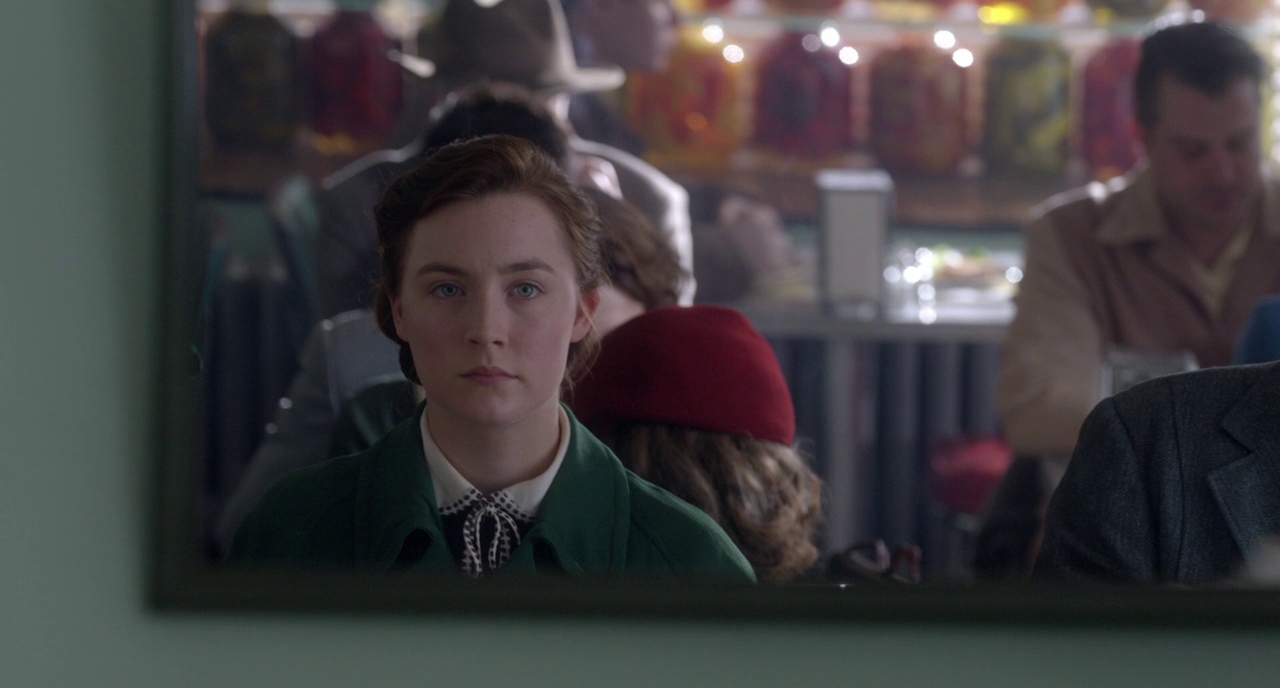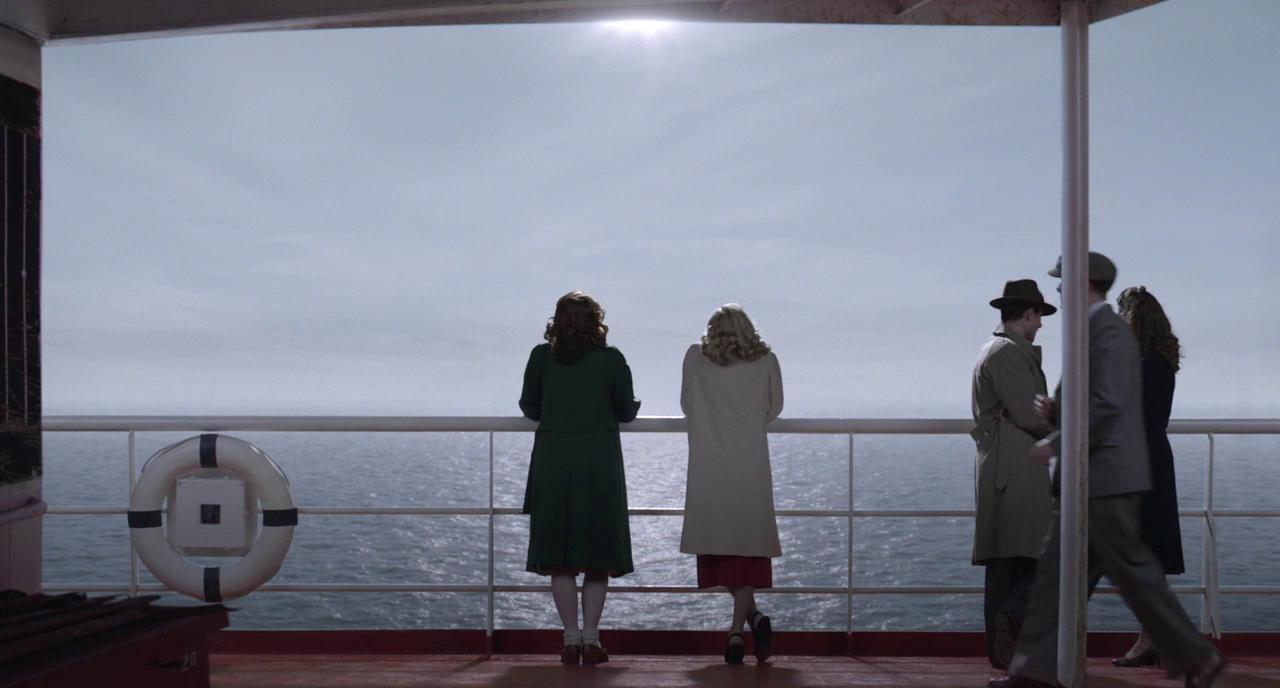

“You have lives that exist across cultures, countries, and versions of yourself frozen in time in people’s memories because they won’t meet you again or see how much you’ve grown into or even out of yourself. ” As John Crowley’s 2015 drama turns 10, our columnist Haaniyah Awale Angus pens a personal reflection on Brooklyn and her sense of estrangement from a stable concept of ‘home’.
What does it mean to belong or have somewhere you call home? I’ve always wondered this as someone who spent the majority of my childhood, adolescence, and even adulthood coloured by constant moving and resettling. Whenever I’m asked the simple question, “So where are you from?” it creates fear in my body, not because the person asking is looking to be uniquely cruel and provoke an anxious reaction, but because I’m not entirely sure of my answer.
I have cities I’ve lived in, homes I’ve had to say goodbye to, pets I’ve given up for adoption, and schools I’ve hated, but nowhere that I’ve felt settled enough to let my guard down or attach myself to a sense of belonging. My passport says I was born in East London. I spent my youth and education split between international schools in Saudi Arabia and state schools in Aylesbury, Buckinghamshire. Most of my mother’s family lives abroad, and I remain, as most third-culture children do, in a state of perpetual estrangement from the concept of home.
In Brooklyn (2015), Saoirse Ronan stars as Eilis Lacey, a young Irish woman who immigrates from her small town of Enniscorthy in Ireland to Brooklyn in the early 1950s. She leaves behind her mother and sister in search of work and a new life. After a tumultuous journey, Eilis is placed in a boarding house for young women in the city and works as a department store clerk. Throughout this first part of her time in Brooklyn, we see her struggling to adjust to the loneliness and homesickness she faces. In several sequences, Eilis travels around the borough with commuters on her way to and from work. She sits in a deli packed with the bustling lunch crowd and the noise that, to any newcomer to a city, would be overwhelming, but to its residents is just the score of everyday life. Even though she’s surrounded by people, Eilis stands out, her unhappiness cutting through the crowd, unsure of where she belongs and if the right decision was made.

When thinking of Eilis and her early experiences in Brooklyn, the unfamiliarity of cultural norms, food, and an accent barrier, my mind wanders to my own family, who immigrated as refugees in the 1990s. After the civil war in Somalia, my mother’s siblings split, settling in Sweden, Norway, Canada, Egypt, and, for my mother and one of my uncles, the United Kingdom. In many ways, I’m privileged. My constant moving was not influenced by war and displacement, but when I ask my uncles and aunts about their experiences, I find a common thread: we’ve both had to actively find our homes and sense of belonging in adulthood rather than inheriting them from childhood. My mum, in particular, moved to London in the mid-90s, and before getting married and having me, went to college, worked as a cleaner, and tried to find a life for herself. As a child, she spoke of Somalia with fondness, of how she missed the papaya and mango trees in her father’s garden, and of her own mother, who was beloved by their neighbours. I also suspected that her memories were often juxtaposed with the reality of being a refugee and all the political fodder it weighs one down with. We think of today’s climate of Farage and Labour competing to see who can be the cruellest as an extreme example of the regression we’ve come to know as normal political life, but the feeling of isolation and being a target is not a new one. One of my distinct memories as a child is that of my mother experiencing racial harassment and Islamophobic abuse on the streets of Aylesbury. In the place her husband came from, where she had borne two of her children and was raising her eldest, she was still an outsider. What was home for her? It wasn’t Aylesbury, or Saudi, or London. In fact, many of our discussions before her passing focused on her wanting to settle in Turkey after a trip with her sisters left her thinking a move there might finally cement that feeling of belonging.
However, even with the reality of my mother’s experience, I do know that for many, there are myriad ways to help us feel at home, even if it isn’t as free of growing pains as we’d hope. One of which is work, Eilis’ homesickness eventually catches the attention of Father Flood (Jim Broadbent), the priest who helped Eilis’ sister Rose arrange her move to Brooklyn. Father Flood sympathises with her, saying he had forgotten just how bad it feels to be away from home, and tries to quell her worries by saying that “homesickness is like most sickness, it’ll make you feel wretched and move onto someone else”. He then informs Eilis that he has signed her up and paid for night school so she can become an accountant, a role more fitting of her experience. Eilis finds that doing her course not only blossoms her confidence but also helps her open up. After meeting Tony (Emory Cohen) at a dance, they start dating, and what once looked like a life from the outside in now takes shape as an actual life for Eilis—one where she is making choices about who she is rather than waiting for them to be made for her. This is until Eilis is informed of her sister’s passing and is needed to return to Ireland. Despite the short time they’ve been together, Tony proposes, and Eilis reluctantly agrees, secretly unsure that once she returns home, she’ll permit herself to endure the awful journey of leaving Ireland for Brooklyn once more. Eilis returns to her old life as a married woman, but, aware of her sister’s death, she conceals her new status to make room for the sadness that has enveloped her family and community.
After my mother’s passing in 2023, I inherited her council tenancy, granting me for the first time in my adult life a sense of stability. It felt like a cruel joke. Your mother is dead, but hey, you finally get to be on the housing ladder! After the initial shock and onboarding of responsibilities, I sat with my brothers and thought about home. We’d lived in Aylesbury as adults, not because we wanted to, but because our mother had and much like other Gen-Z’ers, living with parents and commuting was much more affordable than London rent. It was even clearer when one of my brothers moved to the Middle East for work shortly after that. Creating a home for myself was not only needed to get me out of the physical limbo I was in, but a fundamental part of my grieving process. I had always wanted to go back to London, it’s where I was born, when growing up where I spent my summers visiting my cousins. I’d lived in London for a brief period after uni and returned to Aylesbury due to finance and job difficulties, but I’d always known that London was the singular place where I felt like myself. I believe that everyone has variations of who they are depending on where they live or who they’re around. In Celine Song’s Past Lives (2023), she explores a similar sentiment. You have lives that exist across cultures, countries, and versions of yourself frozen in time in people’s memories because they won’t meet you again or see how much you’ve grown into or even out of yourself. Which version of me is the real me? Is it Haaniyah who grew up in Saudi Arabia, a country that influenced so much of my knowledge of language, my taste in food and music, and the international school accent I try my hardest to hide for fear of being told I’m trying to sound American? Is it the Haaniyah that lived in Aylesbury, even though I made no childhood friends in the few years of primary and secondary school I spent there? Is it Haaniyah who lived in Oxford for uni? Or is it the version of me that awakened in London when I first moved back as an adult in 2021?

I imagine that Eilis asks herself a similar question. When she returns to Ireland, she finds that slotting back into her old life is easier than she presumed, perhaps due to the fact that Eilis takes up her sister’s work as a bookkeeper and resumes living with her mother. What changes, however, is Jim (Domhnall Gleeson), a young man introduced to Eilis through her friend Nancy (Eileen O’Higgins), who remains clueless at her newfound marital status. Jim presents a version of life Eilis could have if she had stayed back, someone who understands her culturally and allows her to amend the deep corrosion of homesickness that lives within her. Jim is nice, fairly kind and asks her to stay back so they can wed, but Eilis, unsure of what she actually wants, wavers at his offer, thinking of Tony and the life she’s built in Brooklyn. Jim suggests that her life here could be just as good if she gave it a chance, but what he doesn’t know is that if Eilis returns, she’d always be looking back, wondering what if and what life could’ve been if she took the risk of sticking it out in New York. After being confronted by her previous boss, the cruel Miss Kelly, for lying about being married and spending time with Jim as if she weren’t, Eilis decides that a choice must be made. The freedom she granted herself in Brooklyn shouldn’t be conditional based on where she is, and must be carried with her at all times. Eilis tells her her full marital name and, after informing her mother and Jim, decides to head back to reunite with her husband.
On the journey back, Eilis runs into a young girl who, much like Eilis at the start of the film, is making her own trip for the first time. Eilis imparts some wisdom: don’t eat when the weather is choppy, lock the bathroom door so that she has free access to it whenever she wants, and keep her eyes open and wits on her when going through customs. But the most important advice and what I’ve taken from the film, years after watching, is her monologue about homesickness.
“You’ll feel so homesick that you’ll want to die, and there’s nothing you can do about it apart from endure it. But you will, and it won’t kill you. And one day the sun will come out – you might not even notice straight away, it’ll be that faint. And then you’ll catch yourself thinking about something or someone who has no connection with the past. Someone who’s only yours. And you’ll realize… that this is where your life is.”
“I first watched Brooklyn in 2023, when I was still choosing who I wanted to be. Which version of Haaniyah was the one that deserved a chance to live as a fully formed person? As I sit here writing this at the tail end of 2025, that choice has long been made.”
Haaniyah Awale Angus
I first watched Brooklyn in 2023, when I was still choosing who I wanted to be. Which version of Haaniyah was the one that deserved a chance to live as a fully formed person? As I sit here writing this at the tail end of 2025, that choice has long been made. I live in a flat in North London that I share with my brother. My weekend plans are to spend time with friends because I now have a community that didn’t exist in Aylesbury or Saudi or even Oxford. My job is here, my life is here. I feel that twinge of homesickness every once in a while, the bout of nostalgia for a past split amongst continental divides, but my connections are what make home for me. My homesickness is almost always intertwined with grief, but I must remember that despite my loss, London has allowed me to create a new path for myself. Eilis and I may be removed by decades and backgrounds, but the feeling remains, it’s one that I’m sure you, reading this, have also experienced, and I hope that we all find home one day, or at least something close.





